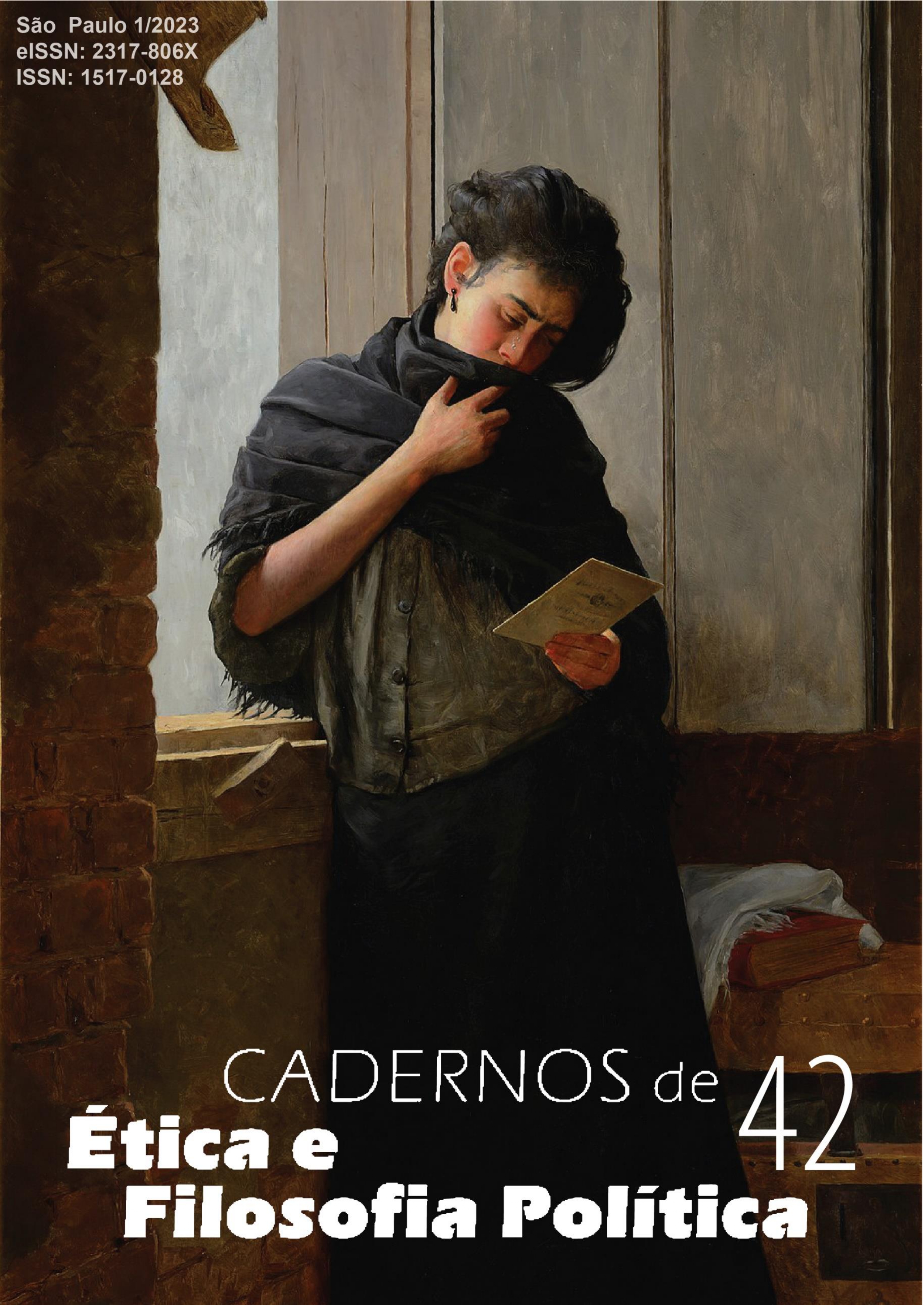The omnipotence drive and its vicissitudes
DOI:
https://doi.org/10.11606/issn.1517-0128.v42i1p51-63Keywords:
Arthur Schopenhauer, Theodor W. Adorno, Suffering, World, NegativityAbstract
This paper aims to show the centrality that the issue of suffering in the philosophies of Arthur Schopenhauer and Theodor Adorno. The starting point is a precise cut in the work of both authors aiming at a brief reconstruction of Schopenhauer’s metaphysics, with emphasis on the conception of Will, developed in The World as Will and Representation, of 1818, and a presentation of the main concepts that compose the conception of negative dialectics, exposed by Adorno in the work of the same name in 1966. Finally, I defend the thesis that, on one hand, Adorno approaches Schopenhauer by giving centrality to the question of suffering and, more specifically, to a bodily or physical kind of suffering. On the other hand, I show that there are irreconcilable elements between the two philosophies insofar as the notion of negative dialectics intends to move away from all forms of idealism, and the metaphysical system developed by Schopenhauer would not have been able, according to Adorno, to effectively break with the idealist philosophy.
Downloads
References
ADORNO, T. “Capitalismo Tardio ou Sociedade Industrial?” In: COHN, G. (Org.) Theodor Adorno: Sociologia. São Paulo: Editora Ática, 1986.
ADORNO, T. Dialética Negativa. Rio de Janeiro: Zahar, 2009.
ADORNO, T. History and Freedom: Lectures 1964–1965. Cambridge: Polity Press, 2006.
ADORNO, T. Lectures on Negative Dialectics: Fragments of a Lecture Course 1965/1966. Cambridge: Polity Press, 2008.
ADORNO, T. Metaphisics: Concepts and Problems. Stanford: Stanford University Press, 2001.
ADORNO, T. Minima Moralia. Rio de Janeiro: Beco do Azougue, 2008.
ADORNO, T. Terminología Filosófica. Tomos I e II. Madrid: Taurus, 1983.
ADORNO, T.; HORKHEIMER, M. Dialética do Esclarecimento. Rio de Janeiro: Zahar, 1985.
BARBOZA, J. Schopenhauer. Rio de Janeiro: Zahar, 2003.
CACCIOLA, M. L. “O tema da razão em Horkheimer e Schopenhauer”. Cadernos de Filosofia Alemã: Crítica e Modernidade. 22, 2 (out. 2017), pp 49-61. DOI: https://doi.org/10.11606/issn.2318-9800.v22i2p49-61.
CACCIOLA, M. L. Schopenhauer e a questão do dogmatismo. São Paulo: Edusp, 1994.
CHIARELLO, M. Natureza-Morta: Finitude e Negatividade em T. W. Adorno. São Paulo: EDUSP, 2006.
FREYENHAGEN, F. Adorno’s practical philosophy: Living less wrongly. Cambridge: Cambridge University Press, 2013.
HEGEL, G. W. F. Fenomenologia do espírito. Petrópolis: Vozes, 2008.
JANAWAY, C. (org) The Cambridge companion to Schopenhauer. Cambridge: Cambridge University Press, 1999.
MARX, K. “Teses sobre Feuerbach”. In: Marx, K.; Engels, F. A ideologia alemã. São Paulo: Boitempo Editorial, 2007.
PETERS, M. Schopenhauer and Adorno on Bodily Suffering. Basingstoke: Palgrave Macmillan, 2014.
PETRY, F. “Sobre a diferença entre morte e suicídio em Schopenhauer”. In: Controvérsia – v.2, n.2, jan-jun 2006, pp. 51-71.
RAMOS, F. C. “Horkheimer leitor de Schopenhauer: uma tradução e um breve comentário”. In: Cadernos de filosofia alemã, v. 12, 2008, pp. 99-113. DOI: https://doi.org/10.11606/issn.2318-9800.v0i12p99-113.
SCHOPENHAUER, A. O mundo como vontade e como representação. São Paulo: Editora UNESP, 2005.
SCHOPENHAUER, A. O mundo como vontade e como representação – tomo II. São Paulo: Editora UNESP, 2015.
SORIA, A. C. S. “Entre verdade e ilusão: corpo e mundo em Arthur Schopenhauer”. In: Cadernos de filosofia alemã: Crítica e modernidade. 10 (jun. 2012), pp. 61-78. DOI: https://doi.org/10.11606/issn.2318-9800.v0i19p61-78.
Downloads
Published
Issue
Section
License
Copyright (c) 2023 Gabriel Kugnharski

This work is licensed under a Creative Commons Attribution-ShareAlike 4.0 International License.
Funding data
-
Fundação de Amparo à Pesquisa do Estado de São Paulo
Grant numbers número do processo: 2018/06291-0


